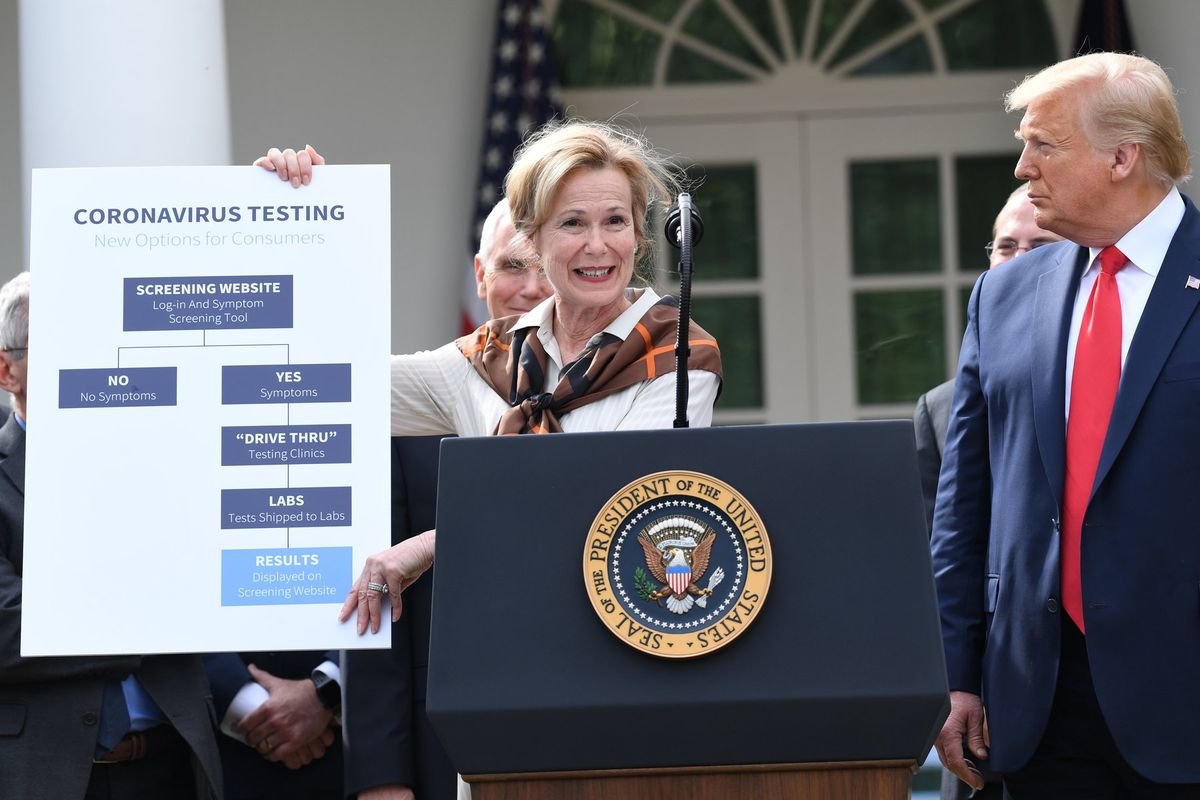Are false-positive test results exaggerating US coronavirus numbers?

A few minutes every morning is all you need.
Stay up to date on the world's Headlines and Human Stories. It's fun, it's factual, it's fluff-free.
Over the past several weeks in the United States, coronavirus cases have increased significantly. According to data from Johns Hopkins University, which has become one of the most popular virus tracking sources, the US reported over 41,000 new cases on June 30.
This comes just days after the US logged its highest daily tally, with over 45,000 new cases last Friday. Despite the increases, daily deaths are on the decline. On June 29, the US recorded 346 deaths, which is much lower than the daily totals in April and early May, when over 2,000 deaths per day wasn’t uncommon.
Public health officials say there are a host of reasons why the death rate is falling despite the increased cases, including more familiarity with how to treat the virus in hospitals and the use of Remdesivir in serious cases, the first drug shown to be effective against COVID-19.
Other doctors say the death rate is lagging behind the jump in cases, but could increase again if those with asymptomatic infections don’t prioritize social distancing.
Among some segments of the public, however, there is distrust over the official number count.
Spurred in part by public figures like industrialist Elon Musk, who suggested there was a “ridiculous number” of false-positive COVID-19 tests skewing the official numbers, especially given the decline in deaths, some are forgoing extra precautions, particularly young people.
A real concern?
According to Ian Mackay, a virologist from the University of Queensland in Australia, false positive coronavirus test results are rare, but could occur if there is accidental contamination in the testing lab.
“These tests are really sensitive so if there is a little bit of carryover from DNA produced in a previous test to the new test, then that could produce a positive result that’s actually not meant to be there," he said. “It doesn’t happen in good labs that have good processes.”
To understand how a false positive could happen, it’s necessary to understand how the tests work. For the viral tests, which determine if somebody currently has the coronavirus, a swab is taken, usually from the back of the nose, which is then tested for identification with the specific genetic material that makes up COVID-19.
According to a report published in the New England Journal of Medicine, however, the more serious risk for the public isn’t false-positives, but the possibility of false-negatives.
“False negative results are more consequential, because infected persons — who might be asymptomatic — may not be isolated and can infect others,” the authors noted.
According to Mackay, false-negatives could happen if the sample is taken too soon after an individual contracts the virus, or if it is too late in the virus cycle.
The US Centers for Disease Control and Prevention (CDC) says symptoms may appear anywhere from 2 to 14 days after infection, but that the onset and duration of the period when the virus replicates and might be contagious is not yet fully known.
“Ten times higher”
Although incorrect viral testing results are likely impacting the COVID-19 number count to a minimal degree in one way or another, the CDC estimates that overall there is likely a vast undercount in official tallies.
Data released by the CDC on June 26 indicates that viral infections in many parts of the US could be ten times higher than officially reported.
“This study underscores that there are probably a lot of people infected without knowing it, likely because they have mild or asymptomatic infection,” said the head researcher for the study, Dr. Fiona Havers.
“But those people could still spread it to others,” she added.
Fauci’s warning
In another public briefing with Congress on June 30, Dr. Anthony Fauci, a US health expert that has helped spearhead the country’s virus response, warned that growing public indifference to virus protocols, both publicly and by government, is making it harder to combat the health crisis.
In a recent interview, he laid out his concerns in no uncertain terms, arguing that the US was “unlikely” to achieve herd immunity – the percentage of the population immune to a disease needed to naturally slow its spread – if society as a whole gives up on fighting the virus.
He also warned that if a significant segment of the population declines to get vaccinated when one is found, it could put into doubt the country’s ability to stamp out the virus.
“There is a general anti-science, anti-authority, anti-vaccine feeling among some people in this country – an alarmingly large percentage of people, relatively speaking,” he said.
“We have to make sure we engage the community, as we’re doing now, to get community people to help us [sic] for people to understand that we are doing everything we can to show that [a potential vaccine] is safe and effective,” he added.
Have a tip or story? Get in touch with our reporters at tips@themilsource.com




Comments ()